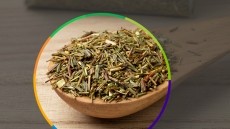Life saving and cost-effective: Further evidence for sterols healthcare benefit

According to a recent study in the European Journal of Health Economics, daily consumption of plant sterol-enriched margarine-type spreads could reduce the number of cardiovascular events (CVE) per 10,000 people over 20 years by 69 in men, and 40 in women.
These figures include a projected prevention of ten male lives per 10,000 people and seven female lives per 10,000 women, said the research team led by University of Surrey, in conjunction with King’s College London (KCL) - who noted that reduction in CVE risk was greater in males and older individuals.
Supplementation of individuals with high cholesterol (defined as above 6 millimoles/ litre (mmol/l)), with the sterol-enriched spreads would be completely cost-effective for individuals over a certain age threshold, the team calculated.
“If the NHS pays the excess cost of enriched spreads, for the high-cholesterol group, the probability of enriched spreads being cost-effective is 100% for men aged over 64 years and women over 74, at £20,000/ quality-adjusted life-year (QALY) threshold,” wrote lead author Wei Yang of KCL.
The findings add further weight to a study commissioned by Food Supplements Europe earlier this year (covered by NutraIngredients), highlighting a potential annual €5.3 billion EU-wide healthcare savings associated with hypercholesterolaemic adults over-55 consuming 1.7 g/d of plant sterols.
Model assumptions
The results above assume 50% compliance and daily intake of 3 grams/ day (g/d) of plant sterols (sufficient to cause a 12% lowering of low density lipoprotein cholesterol (LDL-C), as per the findings of a previous meta-analysis of 129 studies).
The model also assumed that the NHS would pay the excess cost of the sterol- enriched spreads compared with normal spreads. The researchers pointed out that if consumers were to pay the full cost of the functional margarines, then the NHS would retain the entire benefit of the reduced CVE costs.
Sensitivity analysis found that probabilities of cost-effectiveness were lower in younger individuals, those with only mildly raised cholesterol (4-6 mmol/ l), and when considered over a shorter 10-year time horizon.
Health policy implications
Currently, the National Institute for Health and Care Excellence (NICE) does not recommend plant sterols or stanols in patients who have already received treatment for cardiovascular disease (CVD). Instead, treatment includes the use of statins in conjunction with a diet that is low in fat and sugar, high in fruit, vegetables, whole grains, nuts, seeds, legumes and oily fish.
Nevertheless, the European Commission has approved health claims for sterol-enriched foods for cholesterol lowering.
Additionally, both the British and American Heart Associations recommend their consumption for reducing CVD risk, together with a growing number of health experts, say the researchers.
“The findings from this study add weight to calls for the increased use of plant sterol-enriched functional food as a preventive strategy for people with hypercholesterolemia, and suggest that encouraging the consumption of plant sterol-enriched functional food is likely to bring cost savings to health systems, as well as improving patient outcomes,” they argue.
The researchers also emphasise that the cost of the bioactive spreads are around the same as statins, and may possibly attract better compliance due to lack of perceived side effects.
“In England, the annual cost of a subsidy equivalent to the excess cost of sterol-enriched spread (about £57 per subject in this study) is similar to the annual cost of many statins.
“Although subject to debate, a drawback that is raised regarding statins is that compliance is reduced because of side effects, and that adverse events may occur. Such issues are less likely to be relevant to functional foods” advocate the authors.
Nevertheless, they acknowledge that education is likely to be needed to raise awareness of plant sterols’ beneficial effects.
“Unlike statins, however, which are provided with doctor endorsement and on prescription, efforts may be needed to ensure that consumers are aware and motivated to use sterol-enriched products and are able to understand the claims made on them,” they conclude.
Source: European Journal of Health Economics
Published online ahead of print, doi: 10.1007/s10198-017-0934-2
“The effectiveness and cost‑effectiveness of plant sterol or stanol‑enriched functional foods as a primary prevention strategy for people with cardiovascular disease risk in England: a modelling study”
Authors: Wei Yang, Heather Gage, Daniel Jackson, Monique Raats.












